Not since the Gilded Age has money dominated American politics as it does today. Untold millions move through political action committees and their steroidal siblings, super PACs, through opaque nonprofit groups run out of PO boxes, much of it intended to keep average voters in the dark about who is influencing their elections. And as the 2014 election year begins, with control of the House of Representatives, the US Senate and 38 governorships at stake, you can expect ever more of this campaign cash — secret and not — flooding into local, state and federal races.
As the “dark money” reporter for Mother Jones, it’s my job to shine as much light on this cash bonanza as I can. I do this using every tool and trick at my disposal: databases, experts, plugged-in sources and good old-fashioned door knocking. Here are four easy-to-use tips for following the money in your state — and throwing some sunlight on the mega-donors trying to sway your elections.
Mine your state’s campaign finance website.
All 50 states maintain a database of some kind detailing basic information about political campaigns — who donated, how much he or she gave, how campaigns raised and spent their money, and so on. If you want to know what individuals or PACs gave to a specific campaign, your state’s campaign finance website has got you covered.
This, for example, is what Michigan’s campaign finance search page looks like:

This map from the Investigative Reporters and Editors organization will point you to your state’s campaign finance site.
If it’s federal data you want, you can’t go wrong with OpenSecrets.org, a project of the Center for Responsive Politics in Washington, DC. Everything you could possibly want to know about congressional and presidential campaigns, PACs and super PACs, and dark-money nonprofit groups is just a few clicks away.
Lost? Confused? Find a sherpa.
Warning: State campaign finance websites can be clunky and hard to navigate. (I’m looking at you, Iowa.) Worry not! In many states, there’s a watchdog organization or public interest group that can decipher your state’s campaign data and help you find what it is you’re looking for.
In my own reporting, I’ve leaned heavily on experts such as Rich Robinson at the Michigan Campaign Finance Network, Mike McCabe at the Wisconsin Democracy Campaign and Andrew Wheat at Texans for Public Justice. These sherpas, as I like to call them, know your state’s campaign finance data forward and backward, and they’re an invaluable resource when trying to track down hard-to-find information in a hurry.

While there’s no directory of state-level public interest groups, contacting your state’s chapter of Common Cause, the national good-government group, is a smart place to start. They can also point you in the direction of the campaign finance experts in your state.
Shedding light on dark money.
Your state’s campaign finance records stop being helpful when it comes to “dark money.” That’s the unlimited cash raised and spent by anonymously funded nonprofits. You know the ones, generically named American Crossroads or Priorities USA. Since the Supreme Court’s 2010 Citizens United decision, nonprofits have pumped record sums of dark money into federal elections, more than $300 million of it during the 2012 campaign season alone.
But there are still ways to figure out who’s siphoning secret money into your state. If there is a specific nonprofit you’re looking into, you can access its annual tax filingson the website of the National Center for Charitable Statistics. These tax forms lag significantly — nonprofits could wait until as late as November 2013 to release their 2012 filings — but they offer valuable information about a dark-money group’s past fundraising and spending and who is on its staff and board of directors.
Below I’ve embedded the 2012 tax filing for Karl Rove’s Crossroads GPS nonprofit. I’ve highlighted in yellow the most valuable information — total money spent and raised, key personnel and grants given out to other nonprofit groups.
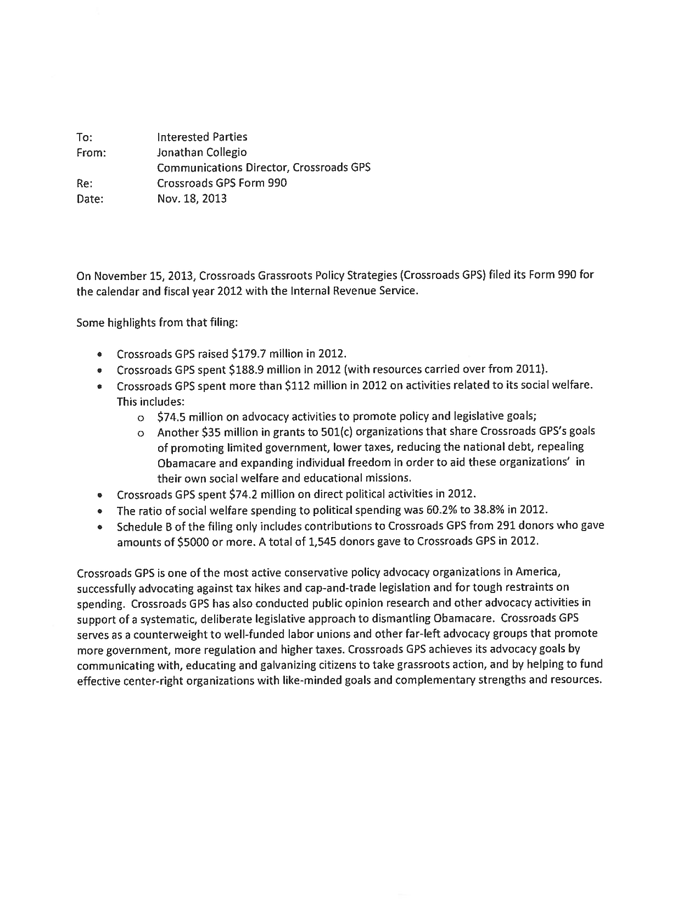

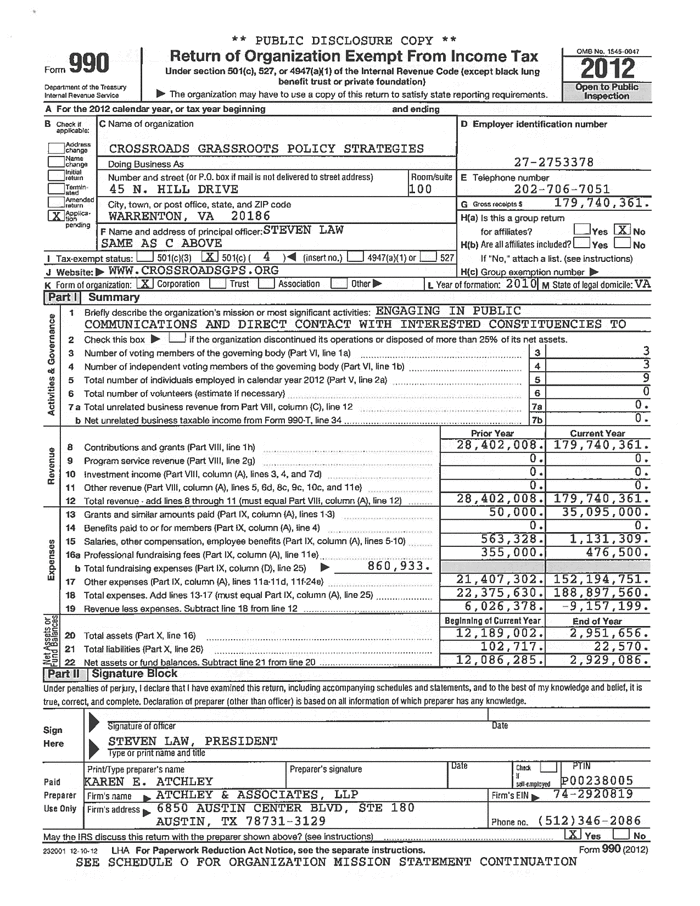
»
OpenSecrets.org also maintains an impressive database of political nonprofit groups that can inform you about which secretive groups are running attack ads on your airwaves.
And last but not least, you can obtain tax filings in-person. By law, nonprofits are required to make available filings for the last three years if you show up at their office and ask for them. It’s your right — and don’t let anyone tell you otherwise.
Show me the file!
Want to know who’s running TV ads in your city? How many ads they’re buying and who they’re targeting? Here’s what you can do about it.
Every broadcaster in the country keeps what’s called a “public file.” That file is available for inspection by any member of the public. Just show up at your local broadcaster and ask to see their public file. Below is the type of record you’ll typically find in a broadcaster’s public file; I’ve highlighted in yellow the relevant information for someone tracking TV ad spending:
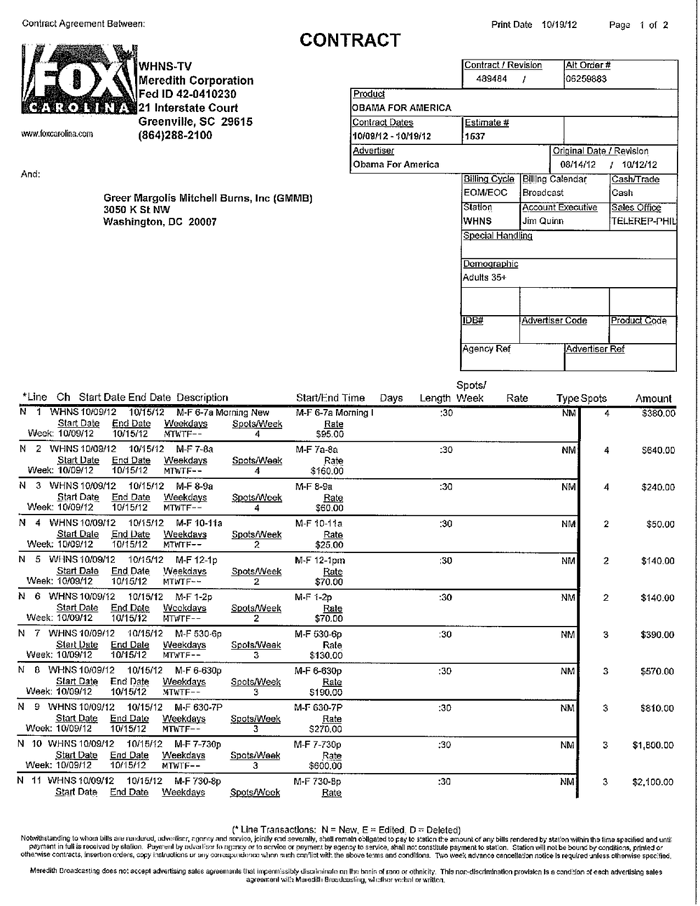
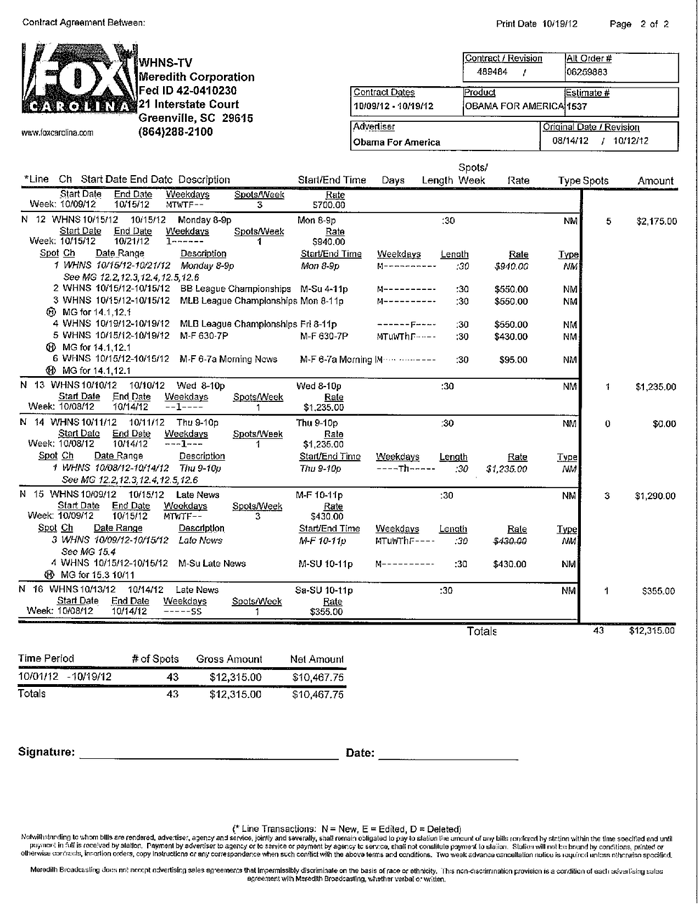
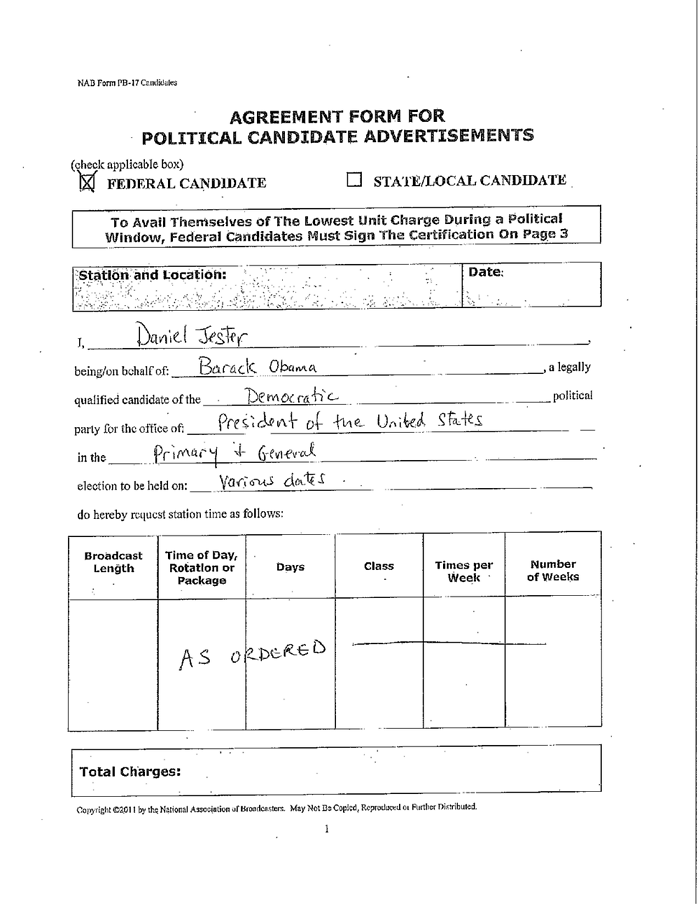
»
Last year, the Federal Communications Commission decided to put a large swath of those advertising records on its website. You can search by TV station here. But for a more detailed database, I recommend using the Sunlight Foundation’s Political Ad Sleuth, which makes TV ad files searchable by date, media market and state.
These resources should be plenty for tracking the money sure to be flooding your state this year, but if you’ve got more questions, you can email me at akroll (at) motherjones (dot) com.

